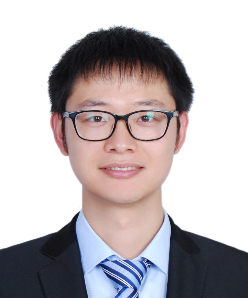

Prof. Jun Wang
IEEE/IAPR Fellow, Member of Academia Europaea
City University of Hong Kong,China
Jun Wang is a chair professor in the Department of Computer Science and the Department of Data Science at City University of Hong Kong. Prior to this position, he held various academic positions at Dalian University of Technology, Case Western Reserve University, University of North Dakota, and the Chinese University of Hong Kong. He also held various short-term visiting positions at USAF Armstrong Laboratory, RIKEN Brain Science Institute, Dalian University of Technology, Huazhong University of Science and Technology, and Shanghai Jiao Tong University. He received a B.S. degree in electrical engineering and an M.S. degree from Dalian University of Technology, and his Ph.D. degree from Case Western Reserve University. His current research interests include neural networks and their applications. He published about 350 journal papers, 15 book chapters, 11 edited books, and numerous conference papers in these areas. He is the Editor-in-Chief of the IEEE Transactions on Artificial Intelligence and was the Editor-in-Chief of the IEEE Transactions on Cybernetics (2014-2019). He was an organizer of many international conferences, such as the General Chair of the 13th/25th International Conference on Neural Information Processing (2006/2018), the 2008 IEEE World Congress on Computational Intelligence, and a Program Chair of the IEEE International Conference on Systems, Man, and Cybernetics (2012). He is an IEEE Life Fellow, IAPR Fellow, CAAI Fellow, and a Fellow of the Hong Kong Academy of Engineering. He was a Distinguished Lecturer of the IEEE Computational Intelligence Society and the IEEE Systems, Man and Cybernetics Society. In addition, he served as President of Asia Pacific Neural Network Assembly (APNNA) in 2006 and served in many organizations such as the IEEE Fellow Committee, the IEEE Computational Intelligence Society Awards Committee, and the IEEE Systems, Man, and Cybernetics Society Board of Governors. He is a recipient of the APNNA Outstanding Achievement Award in 2011, IEEE CIS Neural Networks Pioneer Award in 2014, CAAI Wu Wenjun AI Achievement Award in 2016, and IEEE SMCS Norbert Wiener Outstanding Research Award and Outstanding Contribution Award in 2019, among other distinctions.
Assoc. Prof. Haisheng Xia
TongJi University, China
Haisheng Xia, associate professor and doctoral supervisor at Tongji University, assistant to the dean of the school of Mechanical Engineering, and Xiaomi Young Scholar. His primary research focuses on wearable robotics. He has presided over more than 10 national and provincial-level projects, including 2 NSFC projects, and projects under the National Key R&D Program of China. He has published over 40 papers, including more than 20 as first or corresponding author in journals such as Nature Communications, and has been granted over 10 invention patents. His receives awards including the First Prize of the Anhui Provincial Science and Technology Progress Award, and the Best Conference Paper Award at the IEEE ICDL.He serves as an Associate Editor for the IEEE Transactions on Automation Science and Engineering and has organized special issues as Leading Guest Editor for journals such as IEEE Transactions on Fuzzy Systems and Journal of Field Robotics. He founded and chairs the IEEE SMC Technical Committee on Flexible Electronic Systems.
Prof. Yachao Li
Xidian University, China
Professor Li Yachao serves as Vice Dean of the Graduate School at Xi'an University of Electronic Science and Technology. He holds the rank of Level II Professor and is a doctoral supervisor. Recognized as a National High-Level Leading Talent by the Ministry of Education, a National Young Talent, and a Shaanxi Provincial Outstanding Young Scientist, he leads Shaanxi Province's National First-Class Team initiative. He was promoted to Associate Professor in June 2010 and appointed as a Master's Supervisor in December 2010. appointed as a doctoral supervisor in June 2015, recognized as the inaugural Huashan Scholar Elite Talent in August 2015, promoted to Professor in July 2016, appointed as Huashan Distinguished Professor in December 2019, appointed as Huashan Leading Professor in 2021, and promoted to Level II Professor in 2023.
Prof. Badong Li
National-Level Talent
Xi'an Jiaotong University, China
Badong Chen received the B.S. and M.S. degrees in control theory and engineering from Chongqing University, in 1997 and 2003, respectively, and the Ph.D. degree in computer science and technology from Tsinghua University in 2008. He was a Postdoctoral Researcher with Tsinghua University from 2008 to 2010, and a Postdoctoral Associate at the University of Florida Computational NeuroEngineering Laboratory (CNEL) during the period October, 2010 to September, 2012. In 2015, he visited the Nanyang Technological University (NTU) as a visiting research scientist. He also served as a senior research fellow with The Hong Kong Polytechnic University in 2017. Currently he is a professor at the Institute of Artificial Intelligence and Robotics (IAIR), Xi’an Jiaotong University. His research interests are in signal processing, machine learning, artificial intelligence, neural engineering and robotics. He has published 6 books, 5 chapters, and over 300 papers in various journals and conference proceedings. Dr. Chen is an IEEE Senior Member and serves (or has served) as a Technical Committee Member of IEEE SPS Machine Learning for Signal Processing (MLSP), and a Technical Committee Member of IEEE CIS Cognitive and Developmental Systems (CDS), and an Associate Editor (or Editor Board Member) for several international journals including IEEE Transactions on Circuits and Systems for Video Technology (TCSVT), IEEE Transactions on Neural Networks and Learning Systems (TNNLS), IEEE Transactions on Cognitive and Developmental Systems (TCDS), Neural Networks, Journal of The Franklin Institute, and Entropy.
Prof. Huayan Pu
National Science Fund for Distinguished Young Scholars
Chongqing University, China
Pu Huayan, recipient of the National Science Fund for Distinguished Young Scholars. Graduated from the State Key Laboratory of Digital Manufacturing Equipment and Technology at Huazhong University of Science and Technology. Currently serves as a Level-2 Professor at Chongqing University, doctoral supervisor, Director of the Chongqing University Robotics Institute, expert member of the National Marine Special Project General Expert Group, Chief Engineer of China South Industries Group Corporation Chang'an Wangjiang Industrial Group, Chief Designer of amphibious unmanned systems, Chief Scientist of the National Major Science and Technology Intelligence Special Project, and Chief Scientist of the National Key R&D Program. Her primary research focuses on transmission system dynamics, vibration and noise reduction, and individual and swarm intelligence in intelligent unmanned systems. She pioneered the concept of electromagnetic negative stiffness, successfully applying it in major airborne, space, land, and sea equipment. Recipient of the National Science Fund for Distinguished Young Scholars, National Young Expert Award, Chinese Association of Automation Young Scientist Award, Shanghai Outstanding Youth Contribution Award in Science and Technology, Shanghai Rising Star in Science and Technology, Shanghai Top Ten Outstanding Young Experts, Shanghai Young Science and Technology Talent, and Shanghai Dawn Plan Scholar. He has received two Second Prizes of the National Technology Invention Award (2016, 2019), ranked first in four provincial/ministerial-level First Prizes including the Shanghai Technology Invention Award, Shanghai Science and Technology Progress Award, Chongqing Science and Technology Progress Award, and China Automation Society Science and Technology Progress Award. He ranked second in the First Prize of the Ministry of Education Science and Technology Progress Award and the First Prize of the China Machinery Industry Science and Technology Progress Award. Selected for the National Outstanding Doctoral Dissertation Award in Mechanical Engineering, Hubei Provincial Outstanding Doctoral Dissertation Award, and China International Industry Fair Innovation Gold Award.
Prof. Xiangpeng Xie
National Science Fund for Distinguished Young Scholars
Nanjing University of Posts and Telecommunications, China
Professor Xie Xiangpeng, PhD Supervisor. Recipient of the National Natural Science Foundation of China's Excellent Young Scientist Fund and the Provincial Outstanding Young Scientist Fund. Selected for the Jiangsu Province High-Level Talent Cultivation Program (333 Project) at the second tier, Nanjing University of Posts and Telecommunications' 1311 Talent Program as a Dingshan Scholar, Hua Li Innovation Talent Program as a Leading Talent, and serves as the Principal Investigator of the 1311 Innovation Team. Currently holds the position of Vice Dean of the School of Internet of Things at Nanjing University of Posts and Telecommunications. Senior Member of IEEE/CAAI/CAA. He has led over 20 national, provincial/ministerial, municipal/departmental, and industry-sponsored research projects. His accolades include: - China Automation Society Young Scientist Award - First Prize, China Automation Society Natural Science Award (co-recipient) - First Prize, China Society for Simulation Natural Science Award (co-recipient) - Second Prize, Shanghai Science and Technology Award for Natural Science (co-recipient) - 2016 CITIC Institute Top 100 Most Influential International Papers Award (first author) 2024 Jiangsu Province Natural Science Top 100 Outstanding Academic Achievements Paper (first author), First Prize in the 18th “Challenge Cup” National College Students' Extracurricular Academic Science and Technology Works Competition and Special Prize in the Jiangsu Provincial Competition (lead advisor), Third Nanjing University of Posts and Telecommunications “Top Ten Outstanding Graduate Advisors,” Second Prize in the China Automation Society Higher Education Teaching Achievement Award, Second Prize in the Jiangsu Provincial Education Science Research Achievement Award (Higher Education Natural Science Category, first author), Nanjing University of Posts and Telecommunications Science and Technology Award Special Prize in Natural Sciences (Ranked First), China Automation Society Outstanding Master's Thesis Advisor for Graduate Student Papers, among other teaching and research honors. Continuously selected as Clarivate Analytics ESI Highly Cited Researcher (2020-2023).
Prof. Zhijun Zhang
IEEE CIS (Computational Intelligence) Guangzhou Chapter
South China University of Technology, China
Zhang Zhijun, a professor of South China University of Technology, doctoral advisor. Prof. Zhang is National top young talents, IEEE CIS (Computational Intelligence) Chairman of Guangzhou Chapter and IEEE Senior member. The director of the bionic intelligent robot laboratory of South China University of Technology, the director of the Hongqian Intelligent Human Machine Interaction Joint Laboratory of South China University of Technology, the director of the Tianxia Valley Artificial Intelligence and Digital Agriculture Joint Laboratory of South China University of Technology, the high-level talent scholar of South China University of Technology, the outstanding youth of Guangdong Province, and the top young talents of Guangdong Province in scientific and technological innovation. He has been engaged in neural network, machine learning, big data analysis, control optimization, swarm unmanned system and robot research for a long time. He is a member of the Mixed Intelligence Committee of the Chinese Society of Automation, a member of the Joint Integration Robot Committee, a member of the Adaptive Dynamic Planning and Intensive Learning Committee, a member of the Visual Perception and Computing Committee of the Chinese Society of Graphics and Images, an editorial board member of the SCI journal Electronics, an executive editor in chief of the Global Journal of Neural Science, an associate editor in chief of the International Journal of Robotics and Control, and a reviewer of more than 20 international SCI professional journals, Evaluator of China National Foundation Committee and Guangdong Provincial High tech Enterprise. It is the first variable parameter dynamic learning neural network in the world, and the error convergence law has reached the super exponential level, which is the first time that the quantification can be proved to reach this level in the field of time varying system problem solving; It is also the first network model to achieve the effect of suppressing large noise and strong interference to zero in a finite time. It is used for prediction, recognition, control, optimization and other scenarios. It is the first time to put forward the concept of flight redundant robot internationally, design and develop a prototype, and create a neural controller for flight robots. A real-time natural human-computer interaction method based on neurodynamics is proposed to solve the problem of real-time natural human-computer interaction of robots. The security price prediction model and method based on morphology and the depth dynamic learning detection strategy based on medical images are proposed. We independently developed mobile inspection robots, nurse robots, multimodal polar human emotion interactive intelligent robots, intelligent flying robots, multimodal rehabilitation wheelchair assisted robots, intelligent robots for detecting anti epidemic masks in complex environments and other prototypes. Some of our achievements are moving towards industrialization.
Zhang Zhijun has published more than 100 papers in important international journals (such as nature sub journal, IEEE Transactions) and conferences, 83 papers in SCI journals, and edit 2 English works. The total number of citations is 2998. It has accepted more than 100 invention patents and authorized 46 invention patents. Presided over or participated in more than 30 national key R&D projects, NSFC and horizontal projects. It has won one IEEE ICAL2011 International Conference Best Paper Award, ARM2020 International Conference Best Paper Award, ISAS2020 International Conference Best Sub conference Paper Award, China Science China Control Conference SCIS-CCC Posting Paper Nomination Award, and IROS2019 International Robot Flagship Conference Workshop Best Poster Award.





